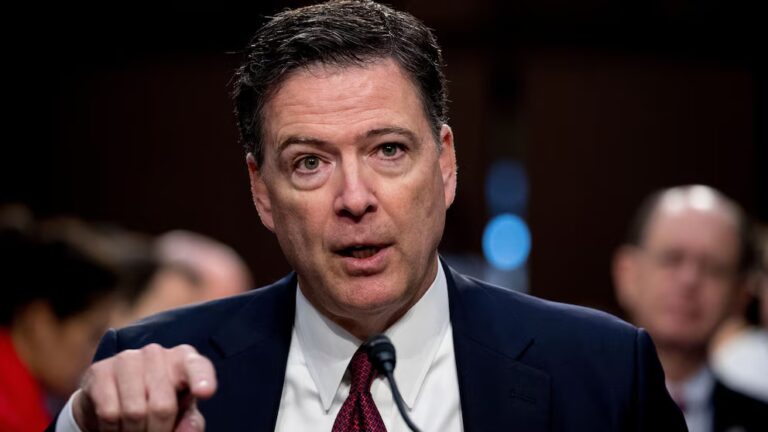
President Donald Trump hit a new low on Tuesday when two of his former close associates became felons. Meanwhile, the stock market hit an all-time high.
As far as Wall Street is concerned, it makes no difference whether a jury found Trump’s former campaign chair guilty of eight federal crimes or that Trump’s longtime personal lawyer and fixer pleaded guilty to eight counts himself.
Trump’s policies have been a boon to them — from the GOP tax cuts passed last year that slashed corporate rates, to the administration’s successful rollback of pieces of Dodd-Frank. Now they see a possibility for even more tax cuts. (Trump’s trade tactics have made investors nervous, but by and large, Wall Street has thus far shrugged them off.)
“Investors aren’t moved because most of Trump’s pro-market policies are already out there,” Jack Ablin, chief investment officer at Cresset Wealth Advisors, said in an email. Investors in the $30 trillion US stock market have had a lot to celebrate this year.
Trump is aware that he has delivered for the Wall Street crowd. In an interview with Fox News aired Thursday, he bragged about the tax cuts, “a tremendous thing,” and deregulation. “If I ever got impeached, I think the market would crash,” he said. “I think everybody would be very poor.”
Whether the markets would crash if Trump was impeached isn’t clear — that’s not what happened under President Bill Clinton — but it’s true that under Trump, they have thrived.
The dynamic answers a question that dogs Trump critics: Why won’t Republicans turn on him? Big investors are key constituents and donors in Republican politics — and they’re happy. Donors have showered millions of dollars on Republicans as a thank you, including billionaire energy mogul Charles Koch, who cut House Speaker Paul Ryan a $500,000 check days after the House tax cuts bill passed.
If Republicans are looking for a reason to confront Trump, it won’t come from Wall Street, even on a day when the president is implicated in committing a federal crime.
“Investors are basically saying that Trump is the headline event, but corporate profits are the bottom line,” Sam Stovall, chief investment strategist at investment research firm CFRA Research, told me.
Trump’s already given Wall Street what they wanted
The markets reacted to the Cohen-Manafort news explosion on Tuesday with an air of nonchalance. The S&P 500 hit a record high during trading, and while the Dow Jones Industrial Average dipped slightly, stocks are now in the midst of their longest bull market run ever. Trump even marked the event on Twitter on Wednesday afternoon.
Wall Street just isn’t shaken by any of this. “When it comes to the Trump news, investors are saying, ‘Tell me something I don’t know, or at least I didn’t expect,’” Stovall said.
Trump and congressional Republicans already delivered on their biggest promise to Wall Street — tax cuts — at the end of last year. They passed a $1.5 trillion tax cut bill that slashed the corporate tax rate to 21 percent from 35 percent, and while most Americans will see tax savings, the bill overwhelmingly benefits the wealthy.
According to estimates from the Center on Budget and Policy Priorities, the top fifth of earners get 70 percent of the bill’s benefits, and the top 1 percent get 34 percent. The new tax treatment for “pass-through” entities — companies organized as sole proprietorships, partnerships, LLCs, or S corporations — will mean an estimated $17 billion in tax savings for millionaires in 2018. American corporations are rewarding their shareholders with stock buybacks this year, thanks in part to their tax savings.
Trump and other Republicans have also begun discussing plans for a second round of tax legislation, which would make permanent the 2017 tax cuts for families and individuals. And if Trump gets his way, lawmakers would reduce the corporate rate by another percentage point. And the Treasury Department is reportedly considering unilaterally overhauling capital gains taxes, which would cut taxes — mainly for rich people — by $100 billion.
Beyond the tax cuts, the Trump administration has also undertaken major efforts to roll back regulations and enforcement, and it’s continued to shepherd the economic recovery that’s been underway since the Obama years.
“For now, investors would rather focus on the fundamentals, not domestic politics,” Ablin told me. Beyond all the hoopla, domestic politics have delivered to Wall Street what it wants.
“The economy’s everything when it comes to markets and confidence, and I think that markets frankly look through all these various political issues,” Larry Kudlow, Trump’s top economic adviser, told CNBC on Wednesday. “There’s no change in policy coming, that’s what really matters. Keep your eye on the ball, and I think the markets have done a good job.”
In the midst of Tuesday’s Cohen and Manafort news, the Washington Post reported that Kudlow invited a prominent white nationalist to his birthday party over the weekend. Wall Street ignored that one, too.
Republicans aren’t exactly jumping over themselves to go after Trump
Republicans haven’t really had much to say about this week’s developments on the Mueller investigation or all these guilty pleas, nor do they want to talk about investigating Trump’s role in campaign finance violations.
Sen. Lindsey Graham (R-SC) shrugged off Tuesday’s developments, saying anything short of campaign collusion with Russia is really no big deal, including campaign finance violations.
Senate Majority Whip John Cornyn said something similar — as long as it’s not Russia, who really cares?
Even Sen. Bob Corker (R-TN), a Trump critic who is retiring this year, has been ambivalent. He told reporters that nobody’s ever doubted Trump directed Cohen to violate campaign finance laws in paying off women and shrugged when asked if Trump should resign.
The Wall Street Journal’s editorial board wrote that the Cohen and Manafort developments are “damaging commentary on the shady operators” Trump associates himself with, but they might not be too consequential. “The Cohen and Manafort convictions raise the stakes for Mr. Trump and his Presidency,” the board wrote, “but voters may want to see more than evidence about payments to a porn star to overturn the results of a presidential election.”
Wall Street isn’t giving Republicans a reason to go after Trump. The Lindsey Graham who said these Mueller and Cohen guilty pleas weren’t that consequential is the same senator who before the tax bill was passed said that if it didn’t happen, “The financial contributions will stop.”
Trump and Republicans have already given the wealthy much of what they wanted, and even if things start to go south going forward, the outlook for Wall Street isn’t that bad.
Investors seem to agree with the assessment in many legal circles that the sitting president can’t be indicted. A Republican-run House is unlikely to impeach him, though a Democratic House might — but Wall Street has been prepared for a potential Democratic takeover of the House for quite some time.
Democrats are currently highly unlikely to both take back the Senate and get enough votes to remove Trump from office if he were impeached by the House. Republicans in the Senate, as they’ve shown throughout Trump’s tenure, are largely unwilling to stand up to the president as long as he enacts the policies they want — and that keeps their donors and rich constituents happy.
And even if impeachment proceedings led to Trump being pushed out, investors wouldn’t exactly be bothered by the prospect of a President Mike Pence.
“Pence is Trump without the tweets,” Stovall said.
Sourse: vox.com






